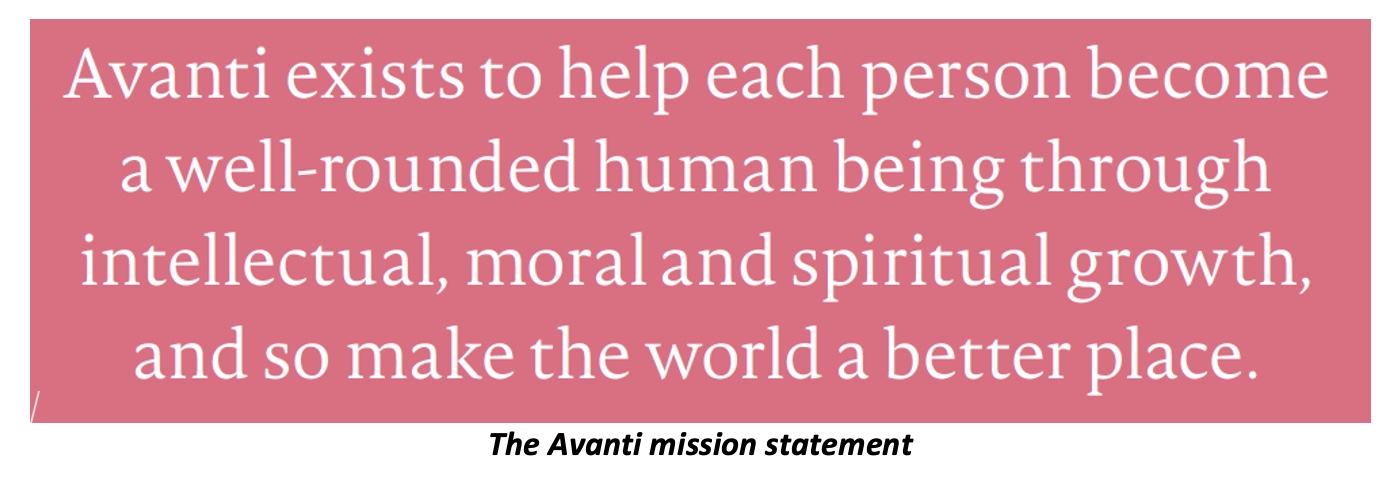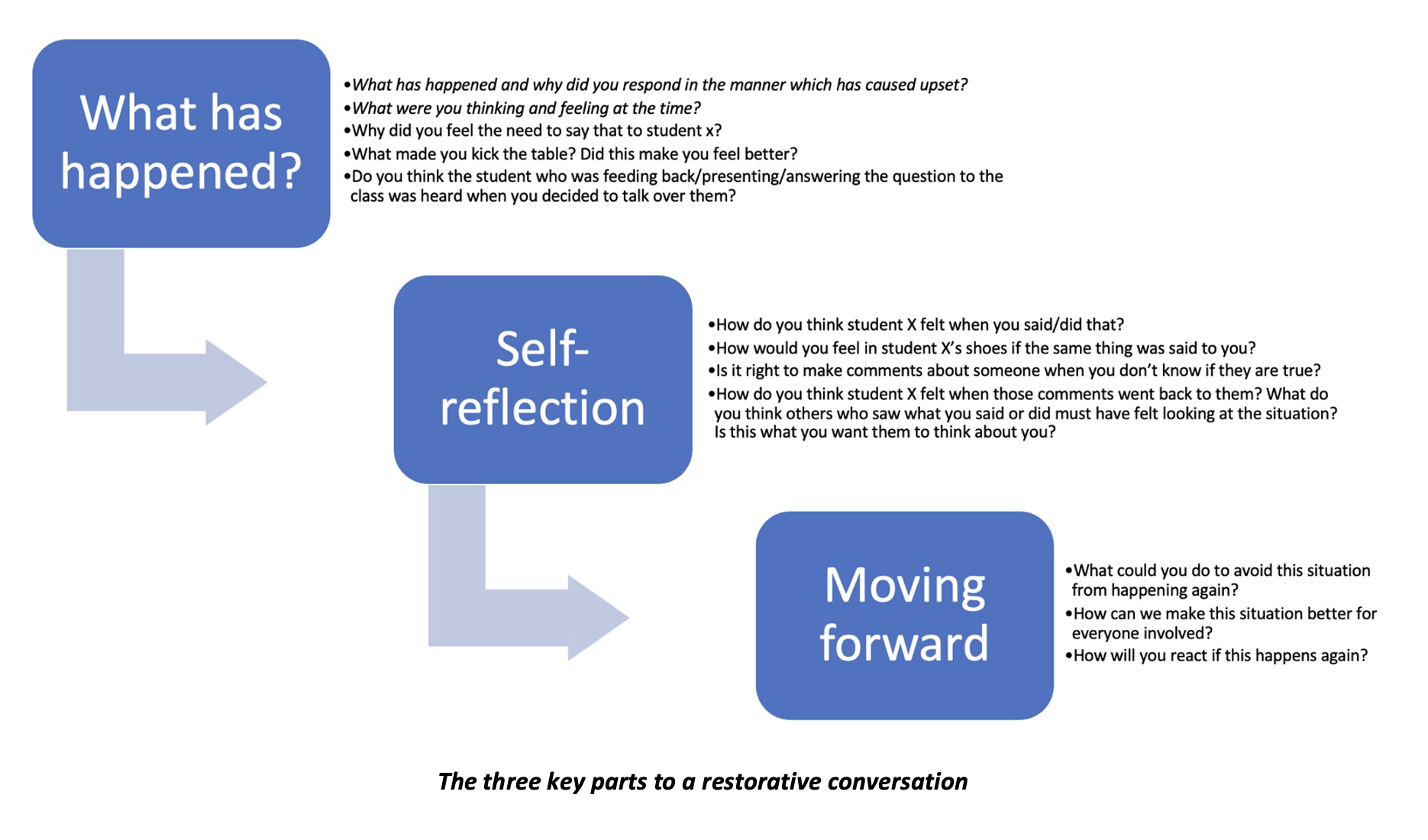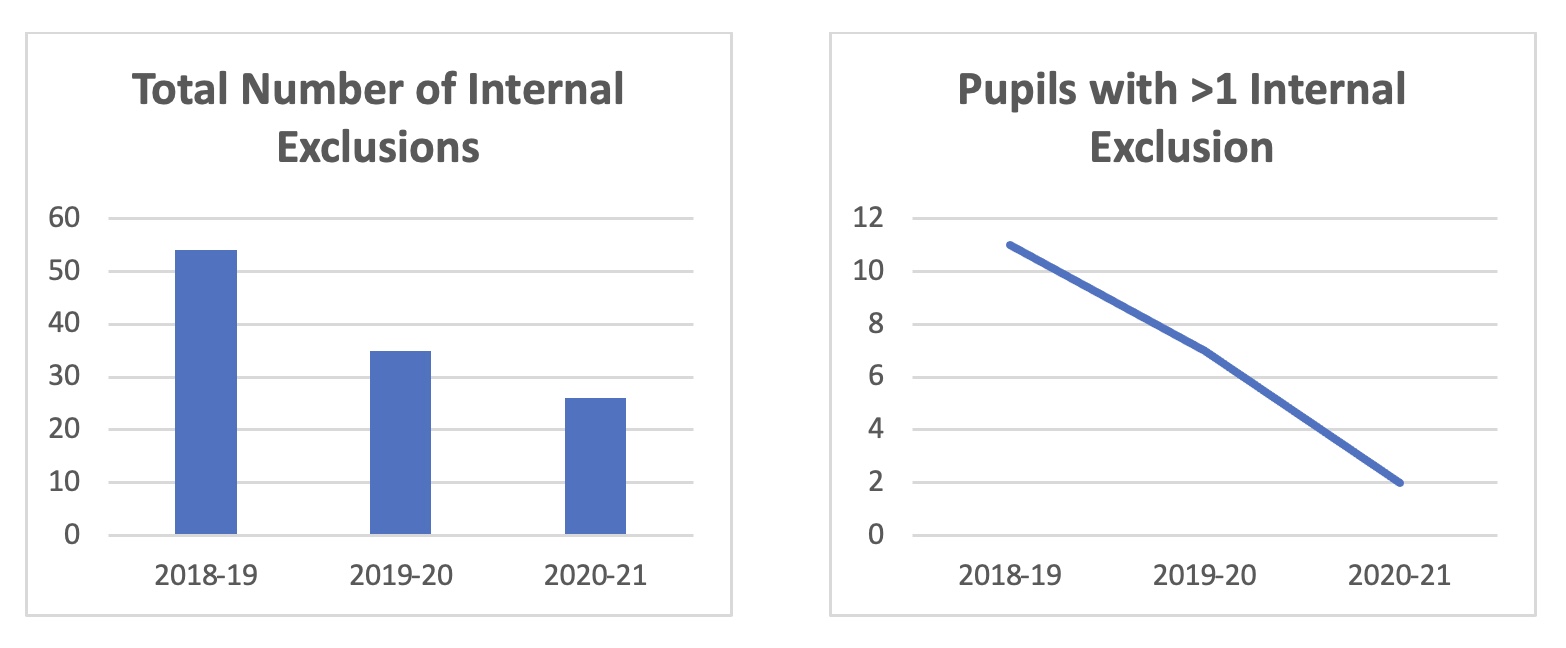
March 2021 Edition

By Matthew Dominé
Share
The ‘Avanti Way’ to more inclusive behaviour management
There are key elements of the Avanti Way that outline how we should manage behaviour in a more compassionate and inclusive way where sanctions are not the only answer to developing the character of our pupils.

At Avanti House Secondary School we are regularly developing our behaviour policy and practices to ensure that we are an inclusive school where our pupils are not simply punished for their mistakes, but instead are given the opportunities to learn and grow through a range of supportive practices. As per the Avanti Way, these practices are based on empathetic dialogue and developing collaborative relationships built on mutual respect. This article will explore two of the alternative approaches that we have introduced, and the impact that we have seen.

Restorative Language & Questioning
The Restorative Justice Council explain that “Restorative practice can become an explicit set of principles and practices that inform every communication in a school. The aim of restorative practice is to create a context where pupils engage actively in learning about their social behaviours, rather than acting as passive recipients of rules and sanctions.” Restorative practice focuses on repairing relationships that have broken down to restore the safe and secure learning environment that we all strive for.
Restorative practice can, and should be used, for all conversations with children about their behaviour. At Avanti House Secondary School we started using this approach in January 2019 in a more formal way to resolve conflicts between pupils, but we are now moving towards a whole school approach where the language and questioning outlined below is being used in a range of situations. Our next step is to embed this into the daily practice of all members of staff across the school.

To find out more about restorative practice I would encourage you to visit the following articles and websites:
- https://restorativejustice.org.uk/blog/restorative-practice-schools-developing-responsibility-over-conformity
- https://pastoralcarematters.blog/2021/02/27/restorative-practice-there-really-is-a-better-way/
- https://www.restorativeresources.org/uploads/5/6/1/4/56143033/challenge_of_culture_change.pdf
- https://www.tandfonline.com/doi/abs/10.1080/02667360903151767
Reflective & Supportive Detentions
In the Summer term of 2018, we identified that there were a number of pupils being issued detentions repeatedly for the same reason and this was escalating to internal and fixed term exclusions (FTE). The traditional way of punishing negative behaviours through detentions was not having a positive impact on behaviour so we decided to develop a new way focussed on self-reflection, dialogue and support.
We moved to separate detentions for different behaviours to enable more targeted intervention and support.
- 20-minute morning detentions focus on repeated lateness, lack of homework, incorrect uniform & lack of equipment. This provides an opportunity for pupils to reflect on routines at home (morning and evening) and for teachers to identify any additional support needed through dialogue with each pupil.
- 60-minute afternoon detentions focus on disruptive and disrespectful behaviours. Pupils are given the opportunity to reflect on the impact of their behaviour on themselves and others. Through written tasks, and dialogue with a teacher, they develop strategies to prevent repeating the behaviour and we can also identify any additional support that may be needed.
So what has the impact been?
The most effective way of assessing the impact of behaviour management strategies is to compare the number of incidents of exclusion (internal and external) along with the number of pupils that are receiving repeated exclusions. Children make mistakes but it is our job to ensure that they learn and do not repeat them.
Fixed Term Exclusion (External)

As you can see below, we have had a significant decrease in the total days of exclusion over the past 3 academic years.

It is extremely positive to see that the number of pupils that have received more than 1 fixed term exclusion has significantly decreased since we have introduced our more inclusive and restorative practices. This indicates that pupils are receiving the support they need to prevent behaviours from repeating.
Internal Exclusions

The data demonstrates that for the past 3 academic years there has been a significant reduction in the number of internal exclusions. The result of our inclusive and restorative practices have also resulted in a large decrease in the number of pupils receiving more than 1 internal exclusion.

Summary
The introduction of both restorative practices, and moving detentions to have a reflective and supportive focus, has resulted in a significant reduction in the number of pupils repeating negative behaviours. This has led to a decrease in both internal and external exclusions, as well as the number of pupils receiving multiple internal and external exclusions.
As a Trust, and a school, we have embraced the messages within the Avanti Way and the proof is in the pudding.
